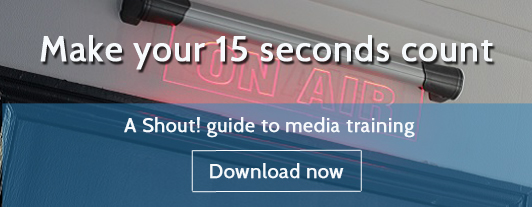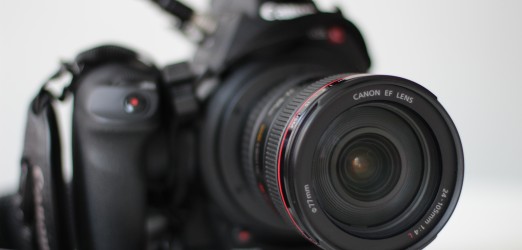Media training helps all levels of spokesperson to improve on their public speaking ability, interact with the media more effectively and ultimately make the best possible impression for future coverage opportunities on radio, TV or online. Whether preparing for a tough grilling on Radio 4’s Today program, or a sofa chat on The One Show, preparing ahead of any interviews with media training can prove invaluable to ensure that the coverage stays on message, gives your brand the best reputation and gets you invited back for future opportunities.
Everyone can benefit
Unfortunately, all too often, CEOs and company executives see themselves as great spokespeople, claiming that they have ‘done a lot of media interviews’ and saying they can’t see the benefits in media training. It is often these guests who perform then worst when being interviewed on radio or TV as they come across as arrogant, one sided and promotional. Media training includes teaching techniques that will help a spokesperson anticipate any direction that an interview may go, prepare appropriately for interviews, and engage in an open discussion with the interviewer rather than appear one-sided and defensive. Moreover, Media Training can help any corporate spokespeople learn how to get their key messages across without going over-branding and potentially getting cut off (particularly on BBC Stations) or angering the journalist. The better any PR interview is, the more respect a spokesperson will gain from journalists and stations and the more likely they are to be seen as a ‘regular’ guest that they will be invited back for future opportunities.
One-on-One over Group Training
There are a lot of media trainers out there, and when selecting one make sure you consider what will most benefit the person being trained. For example, at Shout! we offer one-on-one media training sessions for a half or full day, as well as group sessions for multiple executives or potential spokespeople. The advantages of both are quite different and which is best for the trainee will depend on the purpose of the media training. If you are training a range of people from one company in order to have a pool of potential ‘spokespeople’, then group training sessions can work well as it offers interaction amongst the group with each taking it in turns to ask questions and answer. Alternatively, it may be that a single trainee would benefit from individual media training for an upcoming high profile interview, radio day, or general training.
Crisis Response
When news breaks, or a potential crisis for your brand hits, there often isn’t much time to rehearse for media interviews. Radio Stations and TV Broadcasters will want an immediate response that will not further damage your brand, but instead improve your reputation as best as possible under the circumstances. Those with media training will have mastered interview techniques in order to be able to react quickly to potentially difficult questions and keep on message without being flustered and damaging the company reputation even further.
Post Media Training Practice
Once any media training day or half day is complete, we would say it’s important to also practice – either before known interviews or on a regular basis – to keep media skills sharp. Here are some top tips on how to best prepare for media interviews.
- Supply a friend/ colleague to act as practice interviewer and give them your list of anticipated questions. Have the interviewer mix up the list and re-phrase the questions in their own style.
- Fully answer each question, but try to redirect the interview back to your agenda of prioritised message points.
- Set a firm time limit that closely approximates what you expect to be given on the program or opportunity – usually between 5-10 minutes.
- Record each interview (you don’t need a camera operator- just use your smartphone!) so that you can critique your answers. Pay particular attention to how you made your main points regardless of the questions.
- Work to shorten your answers. In a broadcast interview that you know will be edited, a short comment that clearly makes a point is more likely to be used, and may help to maximise coverage by being repeated in bulletins or in later shows.
For more on what makes the perfect spokesperson you read our related blog or for more expert advice from us, why not come to one of our workshops?




